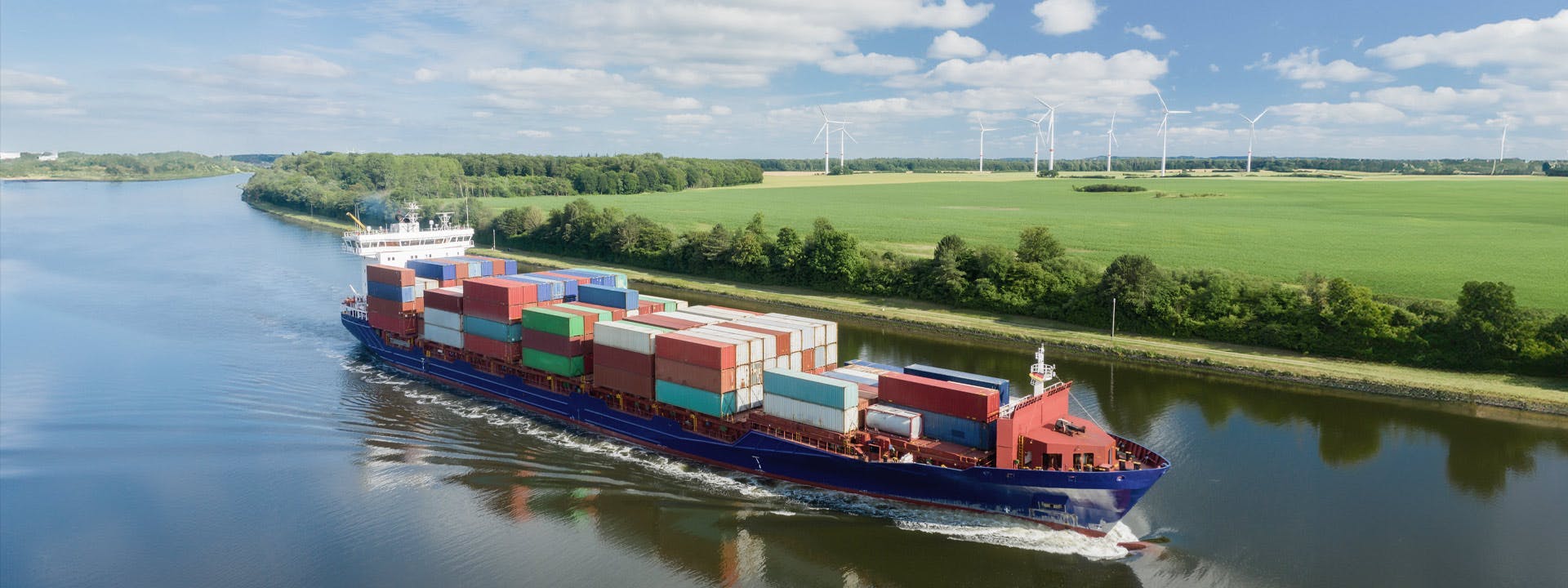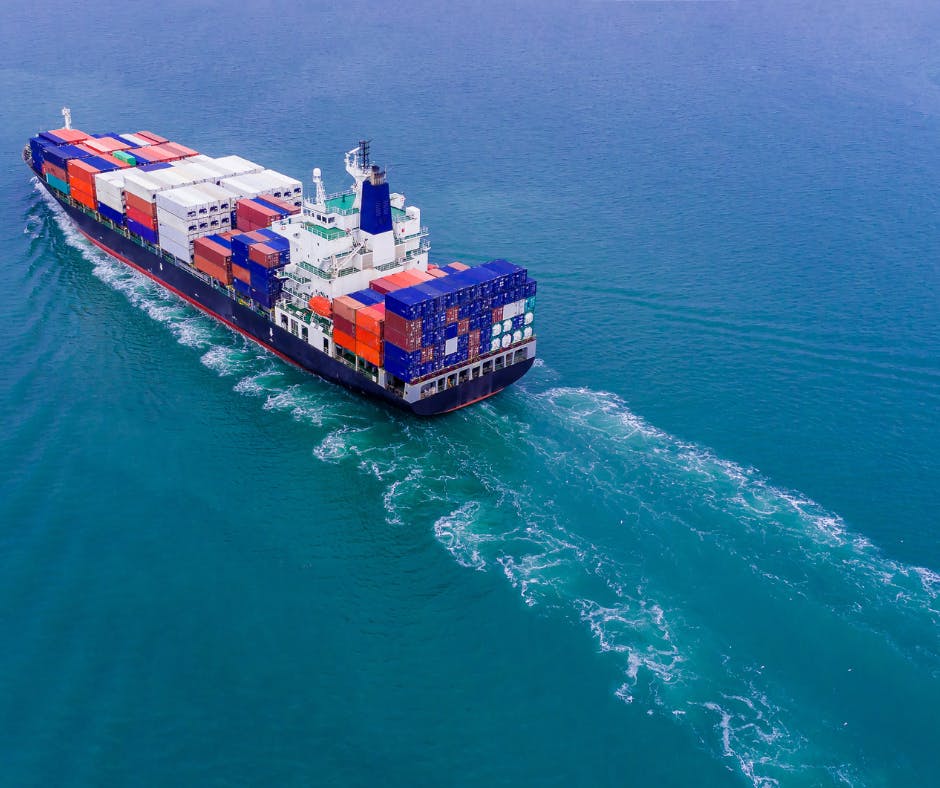Sustainability
Our mission

Watch
Reversing the shipping industry’s role in climate change
Challenge
In 2018, global shipping emissions represented 1,076 million tonnes of CO2, and were responsible for around 2.9% of global emissions caused by human activities. Projections show that global shipping emissions could increase by up to 130% of 2008 emissions by 2050. Container shipping’s continued reliance on manual and paper-based processes contributes to this problem by hampering effective collaboration between shipping stakeholders. For example, port call operations require much manual coordination, which can cause hours of vessel idle time, wasting 4 tons of fuel per hour. Paper bills of lading, which make up the vast majority of B/Ls, waste tonnes of paper and fuel each year being transported around the world in gas-powered vehicles. (source: European Commission, 2023)
Objective
DCSA’s mission to digitally transform the container shipping industry will bring about a new era of sustainability. Through its digital standards initiatives, DCSA is working to ensure end-to-end interoperability of shipping data, processes and technology. By adopting DCSA standards, stakeholders will be able to automatically exchange accurate, timely digital data and documentation for some of the most ecologically impactful activities in container shipping. This will eliminate manual and paper-based processes, making shipping activities more visible, predictable, and far more efficient. As a result, enormous amounts of waste and emissions will be eliminated from international trade.
Meeting the sustainability goal
Contact us
Shape the future of container shipping with us. Contact us to discover how our digital standards can help your organisation achieve its sustainability goals.


DCSA's approach
DCSA collaborates with carriers, shippers, industry associations and other stakeholders to develop vendor-neutral, technology-agnostic, open-source standards for ecologically impactful shipping activities such as Just-in-Time (JIT) port calls and eBL. By enabling the seamless exchange of digital data and documentation, DCSA standards optimise collaboration and efficiency to help the industry meet its sustainability goals.
Key benefits
Sustainability leads to the following three key benefits:
- Reduced vessel emissions
Through the automated exchange of accurate, real-time event data, DCSA JIT standards reduce congestion, delays, waiting time and idle time at port. Recent studies estimate that JIT arrival of vessels can reduce greenhouse gas emissions on par with the total annual CO2 emission of a small European country (source: IMO GloMeep: Just-in-Time Arrival, 2021) - Paperless trade
It is estimated that 100% adoption of a DCSA standardised eBL can save 28,000 trees per year. Research from the Economic and Social Commission for Asia and the Pacific (ESCAP) suggests that fully digitalising regulatory procedures around trade could save between 32 and 86 kg of CO2 equivalents per end-to-end transaction (source: McKinsey, 2022). - More sustainable growth
According to a UK government outlook, global trade will double in real terms and quadruple in dollar terms by 2050. To support this growth sustainably, container shipping must adopt digital standards to improve collaboration and increase efficiency across the supply chain (source: UK Government outlook, 2021)
The impact
The portion of global emissions coming from shipping was 2.89% in 2018. (IMO, 2020)
The IMO aims to reduce the total annual greenhouse gas (GHG) emissions from international shipping by at least 50% by 2050, compared to 2008 levels. (IMO, 2023 )
Electronic Bill of Lading saves 28,000 trees per year and significantly reduce carbon emissions by eliminating paper. (Mckinsey report, 2022)

Our standards

Standards can enhance sustainability in container shipping by promoting operational efficiency through digital solutions, optimising routes, and reducing fuel consumption. Standardised processes and data exchange facilitate better environmental monitoring and compliance, contributing to the industry's overall efforts to minimise its ecological footprint.
Implement standards
The Developer Portal is your gateway for all resources that make the adoption journey smoother and simpler.
Contact us
Shape the future of container shipping with us. Contact us to discover how our digital standards can help your organisation achieve its goals and subscribe to our newsletter for updates.
Contact us
Shape the future of container shipping with us. Contact us to discover how our digital standards can help your organisation achieve its goals and subscribe to our newsletter for updates.






